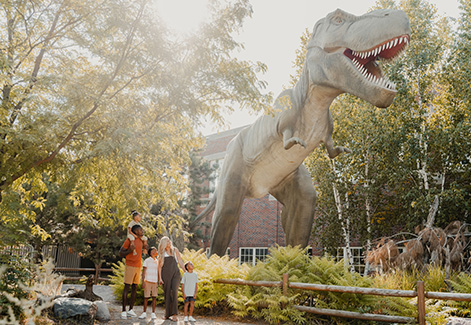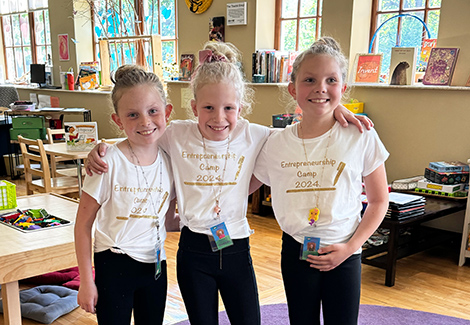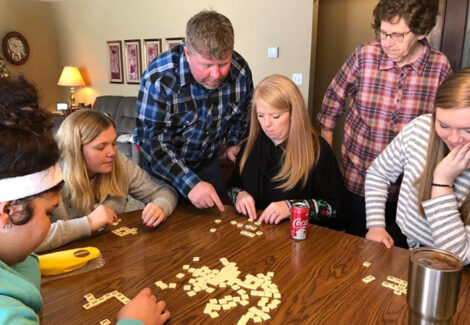Curiosity is a natural way of thinking for children. They readily question moments and experiences as they are happening. This eagerness to learning is something we encourage in our Curious Kids Club offerings.
At the beginning of class, we open discussion about a topic by simply exploring it through questions. Children write down their questions and then discuss them as an entire group. Through questioning, children reveal their current understanding and curiosities around a topic. They then step back, look at their questions, and categorize them; thus, progressively forming them into bigger ideas they explore through a cycle of inquiry. Let’s take a closer look at children’s experiences in a Photography Curious Kids Club offering.
The children’s interest in taking, as well as editing, photos quickly became evident as they discussed their questions around photography. There was also a strong interest in the story behind a photo. Upon further reflection, they decided to combine their two interests to make picture books telling their unique stories.
Before children could begin capturing pictures, they needed to plot out the story they wished to tell, with the understanding that the story could change after diving into their creative process. Characters took form through different mediums such as museum props, sculpture and drawing. With each snap of the camera, their stories soon came to life.
After sorting through their photos and selecting ones that best told their story, the editing began. The children quickly discovered how time consuming this process can be, but diligently continued until their pictures were ready to become a book. They then laminated and bound their books so they could share them with others.
One of the most valuable aspects of our Curious Kids Club is not having a defined product in mind, but rather developing a process-based learning experience.
There is high value in children being active participants in building their own knowledge. The skills of asking your own questions, discussing findings with others to make sense of information, and thinking critically through issues as they arise, helps children discover that learning is a cycle.
According to Barbara Stripling, one of the field’s thought leaders, “Inquiry is unique because it places students at the heart of learning, empowering them to follow their sense of wonder into new discoveries.”



